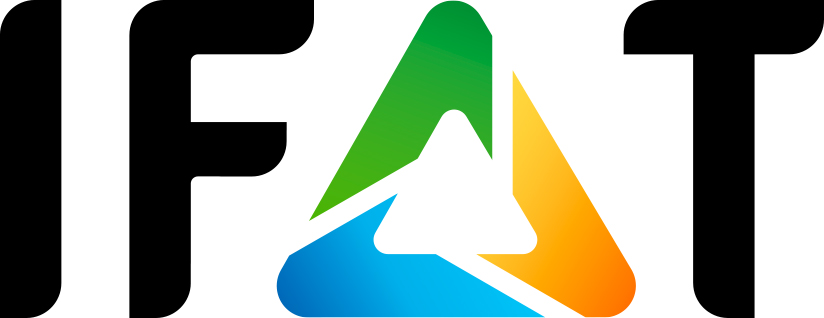Industry closes its water cycles
The increasing shortage of water in many regions of the world is a further driver for the most efficient possible use of this irreplaceable resource in numerous industrial processes.
Water stress is increasing worldwide. On the one hand, demand is increasing: in its World Water Report 2023, Unesco predicts an increase in water consumption of 20 to 30 percent by 2050. On the other hand, usable resources are becoming more limited and climate change is also causing fluctuations in availability. In light of this, the efficient and careful use of water is becoming increasingly important. Not least in industry: according to the FAO, the Food and Agriculture Organization of the United Nations, it is responsible for around 62 percent of fresh water withdrawals in Germany. The average for industrialized nations is 17% (The United Nations World Water Development Report 2023).
Building on previous successes
Technologies for saving and reusing water have been used in industrial water management for many years. According to the German Chemical Industry Association (VCI), the industry now uses every liter of water around six times. As an example from the textile industry, Kyocera launched an inkjet textile printer on the market last year that reduces water consumption in fabric printing from usually over 150 liters per kilogram of fabric to almost zero. According to the manufacturer, the extensive independence from high water availability gives textile companies completely new options when choosing future locations. In the brewing industry, the Carlsberg main brewery in Frederica, Denmark, is considered a current benchmark: the commissioning of a state-of-the-art water treatment plant in 2021 reduced water consumption there by half from the original 2.9 liters of water per liter of beer to 1.4 liters.
Completely wastewater-free production is possible
The concept of Zero Liquid Discharge (ZLD), i.e. the complete recirculation of the water used in the industrial process and its recyclable materials, can be considered the maximum solution. In the past, ZLD has already been implemented worldwide at companies from a wide range of industries: in the automotive industry, in the production of photovoltaic systems or in the manufacture of adhesives. "Particularly in areas with a high demand for production water and equally high quality requirements - such as in the chemical industry or microelectronics - complete water recycling can contribute to constant availability of quantity and quality," emphasizes Michael Boden, authorized signatory at Remondis Aqua Industrie. The company is part of Remondis Aqua, which is one of Germany's leading providers of municipal and industrial water management services. According to him, in addition to the choice of technology, the investment and operating costs are crucial for the successful large-scale implementation of ZLD plants. "For example, the increased energy consumption compared to the previous level of treatment can be minimized by optimally selecting the treatment stages and the associated technology," explains Boden. It is also possible to return the recyclable materials recovered in the ZLD process to internal cycles or sell them on the market. The expert will provide further details on the opportunities and challenges involved in implementing ZLD plants at the international environmental technology trade fair IFAT Munich 2024. His presentation " Resource Recovery from Industrial Water Treatment – Benefits and Challenges of Zero Liquid Discharge" will take place on May 17 at 10:30 a.m. on the Green Stage in Hall C4 of the Munich exhibition grounds.
Utilizing saline industrial water streams
Salts are among the most important constituents of industrial wastewater. In Germany, more than six million tons of chloride are currently discharged into surface waters via wastewater every year. The majority of this comes from the chemical and mineral processing industries. "Since the salt loads are often mixtures of different salts and/or the concentration is too low for direct use, treatment processes are required to enable further use," reports Dr. Yuliya Schießer from polymer materials manufacturer Covestro Germany (Leverkusen) and continues: "Energy-efficient processes for separating the ions or concentrating the salt solutions are of crucial importance. There is still a lack of suitable solutions, particularly in the area of high salt concentrations." In this context, the RIKovery project is pursuing the vision of using saline industrial water streams as fully as possible and thus relieving the pressure on natural water resources. The project is part of the Federal Ministry of Education and Research-funded measure "Water Technologies: Reuse (WavE II)" and systematically investigates the potential of innovative technologies such as Osmotic Assisted Reverse Osmosis, Low-Salt-Rejection Reverse Osmosis, High Pressure Nanofiltration, Foward Osmosis and Flow-Electrode Capacitive Deionization. You can find out more about RIKovery from Dr. Schießer at IFAT Munich 2024 at the Innovation Forum "Water Technologies for Water Reuse" on the Blue Stage in Hall B2. The session on May 16 at 16:30 p.m. and is organized by the German Association for Water, Wastewater and Waste (DWA).
Increasing demand for water and wastewater technology - for example for seawater desalination
According to the Association of German Mechanical and Plant Engineering (VDMA), global exports of water and wastewater technology currently have a volume of eleven billion euros - more than twice as high as in 2012. "This not only indicates a steadily increasing international demand for public services, but also an additional demand for growing and/or new industrial applications," says Richard Clemens. According to the Managing Director of the VDMA Process Equipment and Machinery Division, seawater desalination, for example, is likely to continue to gain in importance internationally - to ensure both the public water supply and the provision of water as a raw, auxiliary or operating material for industry. At IFAT Munich 2024, a panel discussion organized by the European Water Association (EWA) on May 14 at 10:30 a.m. on the Blue Stage will be dedicated to seawater desalination as a contribution to overcoming water shortages in coastal areas.
